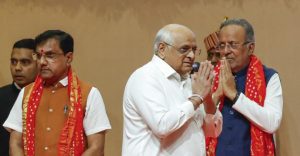In a rally filled with emotion, determination, and unmistakable resolve, Prime Minister Narendra Modi declared to a roaring crowd in Bikaner, Rajasthan, “This is not the India that remains silent — this is the India that answers with barood (gunpowder).” The bold proclamation came as part of his response to the recent Pahalgam terror attack and the subsequent Indian military action codenamed Operation Sindoor.
PM Modi’s address, while political in tone, went far beyond campaign rhetoric. It represented a deliberate and carefully crafted message to Pakistan, to the world, and to Indian citizens—that India’s security doctrine has shifted permanently from passive defense to aggressive deterrence.
The Context: Terror in Pahalgam and the Rapid Response
The latest escalation began with a brutal terrorist attack in Pahalgam, Jammu and Kashmir, on May 5, 2025. Multiple civilians and soldiers were killed in what Indian intelligence quickly traced back to training camps across the Line of Control (LoC) in Pakistan-occupied Kashmir (PoK) and Pakistan’s Punjab province.
Just two days later, Operation Sindoor was executed. In a mere 25 minutes, India struck nine terror facilities using a combination of precision-guided munitions and coordinated strikes from the Army, Navy, and Air Force. The operation was praised for its speed, accuracy, and focus—targeting only terrorist infrastructure and avoiding civilian or Pakistani military sites.
A Strategic Shift in India’s Security Doctrine
At the Bikaner rally, Modi used the success of Operation Sindoor to announce what can now be considered a doctrine of decisive deterrence. “Our enemies thought India would debate, delay, or depend on others. But this is New India. We do not ask—we act,” he declared.
This marks a fundamental shift from previous decades, where India often exercised diplomatic restraint in the face of cross-border terrorism. Modi’s government, which had already demonstrated a more muscular defense policy in 2016 and 2019, has now institutionalized the idea of immediate and proportional retaliation.
He emphasized, “When our citizens are targeted, India doesn’t wait for global sympathy—it gives a fitting reply in real time.”
“Barood”: More Than a Word
The use of the word “barood” (gunpowder) in Modi’s speech was not accidental. It’s evocative, raw, and unambiguous. In contrast to the idea of silence and patience often associated with India’s past responses, Modi’s use of the term conveyed a sense of urgency, readiness, and resolve.
It also resonated deeply with the audience in Bikaner, a region that has witnessed military action and shares an emotional bond with the Indian Armed Forces. “Bikaner and Rajasthan have always stood like a shield for the nation. Today, I salute the bravery of every home here,” Modi said.
Precision and Planning: What Made Operation Sindoor Stand Out
Operation Sindoor was not only rapid—it was strategically nuanced. Intelligence agencies had tracked key movements inside the nine terror camps, identifying their role in training and launching infiltration attempts across the border.
Using this intelligence, Indian forces launched simultaneous precision strikes, neutralizing key assets without entering into a prolonged conflict. According to military sources, SCALP cruise missiles and Hammer smart bombs were deployed from aircraft, while ground surveillance units confirmed target destruction.
Defense analysts have hailed the operation as a textbook example of coordinated, multidomain warfare—something India has been steadily building capacity for.
International Community: Watching a Rising Regional Power
Modi’s bold speech and India’s fast action drew measured responses from the international community. While Western nations like the United States, France, and Japan recognized India’s right to self-defense, they also urged restraint and diplomacy to prevent escalation in a nuclear-armed region.
Modi addressed this global concern subtly in his speech. “India wants peace. But if the price of peace is silence in the face of bloodshed, then we reject that peace,” he said. He reiterated that India’s target was terrorism, not the people or military of Pakistan.
This balanced posture helped India maintain global credibility while asserting its power regionally.
No Room for Dialogue Without Accountability
One of the strongest lines from the Bikaner address was Modi’s statement that, “Talks will happen only when terror ends. And if we must talk, it will be about the return of our land—Pakistan-occupied Kashmir.”
This line drew thunderous applause, reflecting a growing public sentiment in India that sees dialogue without accountability as futile. Modi made it clear that any future engagement with Pakistan would be conditional on dismantling the terror infrastructure operating with impunity across the border.
He also signaled that India’s patience had a limit. “We tried friendship, we offered the hand of peace. But when that hand is bitten, it returns as a fist.”
Domestic Impact: Strengthening the Nationalist Narrative
With national elections on the horizon, PM Modi’s speech served not only as a strategic message but also as a strong political narrative. The themes of national security, retaliation, and sovereignty continue to form the core of the BJP’s messaging across the country.
Modi’s messaging is especially resonant in regions like Rajasthan, where defense families and border communities have long-standing concerns about national security. He also referenced development programs for these areas, including improved infrastructure, digital services, and the Vibrant Villages scheme.
Conclusion: India’s Message—Clear and Uncompromising
From Bikaner, PM Modi’s words rang out far beyond Rajasthan. “This is not the India that remains silent. This is the India that answers with barood,” he said—not as a threat, but as a vow. A vow to protect, to retaliate, and to ensure that Indian lives are not sacrificed without consequence.
With Operation Sindoor, India didn’t just destroy nine terror camps. It reshaped the rules of engagement in South Asia. It declared to the world that terrorism would no longer be a low-cost option for rogue states.
Modi’s speech has since become a rallying cry—a defining articulation of a nation that, when pushed, pushes back with force, focus, and fearless clarity.





More Stories
Stranded Before the Festival: Air India Flight Cancellation Leaves Dozens in Milan Without a Way Home for Deepavali
Massive Gujarat Cabinet Overhaul: Harsh Sanghavi Promoted, Rivaba Jadeja Makes Political Debut
India Rejects Trump’s Statement on Russian Oil, Reaffirms Energy Sovereignty